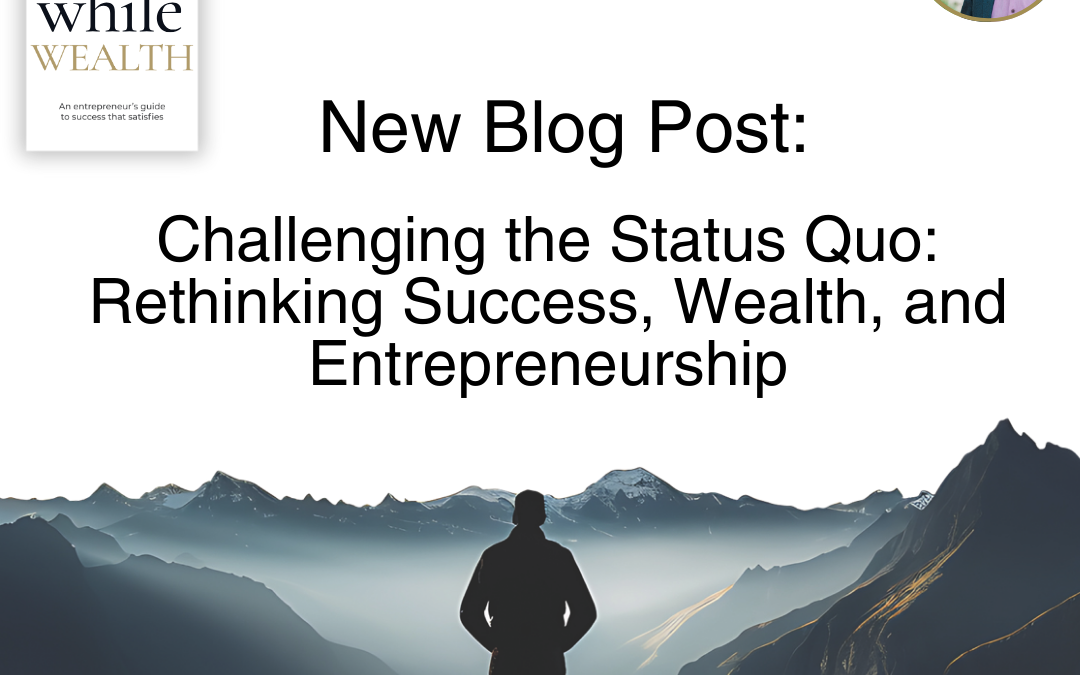We’ve all grown up with a certain idea of what success looks like—good grades, a well-paid job, climbing the corporate ladder. But does this really make us successful, or have we just been conditioned to think that way? In Worthwhile Wealth, I explore how we can challenge these traditional ideas and redefine success in a way that actually benefits individuals, businesses, and society as a whole.
Are We Asking the Right Questions About Success?
For too long, we’ve let narrow definitions of success shape our aspirations. Schools rank students based on exam results, but do those grades really determine a person’s future? We celebrate GDP growth, but does a growing economy mean a happier, healthier society? The problem isn’t just how we measure success—it’s that we rarely stop to question whether those measures are the right ones in the first place.
The Role of Education in Limiting Potential
Our education system is built around standardised tests and rigid curriculums. This might help with consistency, but it doesn’t nurture the creativity or adaptability that real success demands. Some of the most successful entrepreneurs—Richard Branson, Deborah Meaden—thrived not because they followed the traditional path, but because they found ways to play to their own strengths. We need an education system that empowers people to think differently, rather than just teaching them to conform.
Beyond GDP: Measuring What Really Matters
GDP has long been used as the ultimate measure of a country’s success, but it only tells part of the story. It doesn’t account for environmental damage, social inequality, or quality of life. Kate Raworth’s Doughnut Economics presents a compelling case for a new economic model—one that balances financial growth with social well-being and sustainability. If we want to create true wealth, we need to start measuring success in a way that reflects what actually matters.
Why Small Businesses Are the Key to a Better Future
Big corporations might dominate the headlines, but small businesses are the ones leading the charge when it comes to meaningful change. They’re agile, innovative, and better placed to align business with social impact. During the Covid-19 pandemic, we saw countless examples of small businesses pivoting overnight to meet new needs. This adaptability isn’t just impressive—it’s essential for building a more resilient and sustainable economy.
Entrepreneurship Isn’t What You Think It Is
Too often, entrepreneurs are portrayed as ruthless, cutthroat individuals only interested in making money. But in reality, the most successful entrepreneurs are those who focus on creating real value. The people I’ve met through the Entrepreneurs’ Forum are proof of this—many of them are driven by a sense of purpose, not just profit. They succeed because they’re ethical, trustworthy, and genuinely want to make a difference.
Overcoming the Fear of Breaking Away
One of the biggest barriers to change is fear—fear of failure, fear of criticism, fear of stepping away from the traditional path. But if we want to build businesses that create worthwhile wealth, we have to be willing to challenge the norms, take risks, and trust that there’s more than one route to success. Criticism is inevitable, but resilience is what sets apart those who make a difference.
Let’s Build a New Definition of Success
Wealth isn’t just about money. Success isn’t just about status. If we want to build a better future, we need to challenge outdated definitions and start focusing on what really matters—innovation, sustainability, and meaningful impact. Small businesses, ethical entrepreneurship, and a new approach to education and economics are the way forward.
It’s time to stop chasing traditional success and start creating something that truly lasts.
